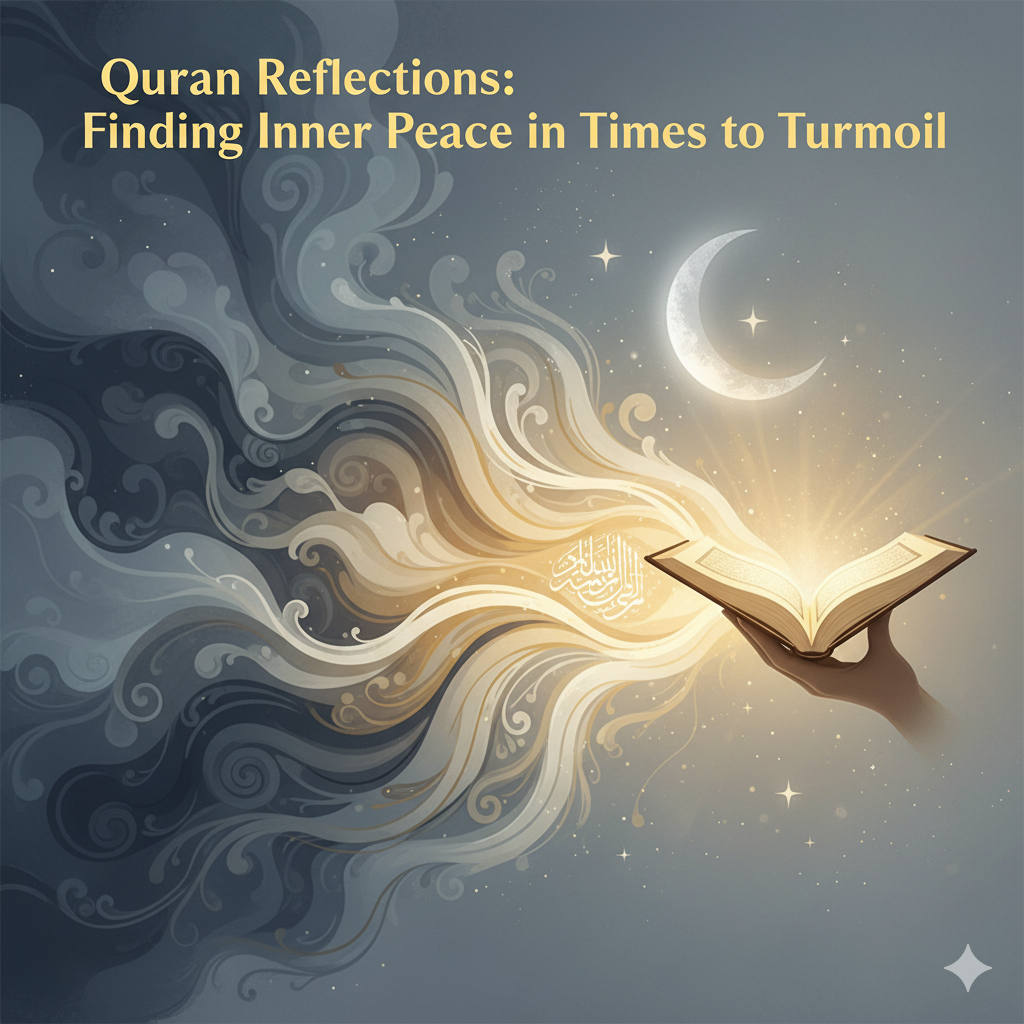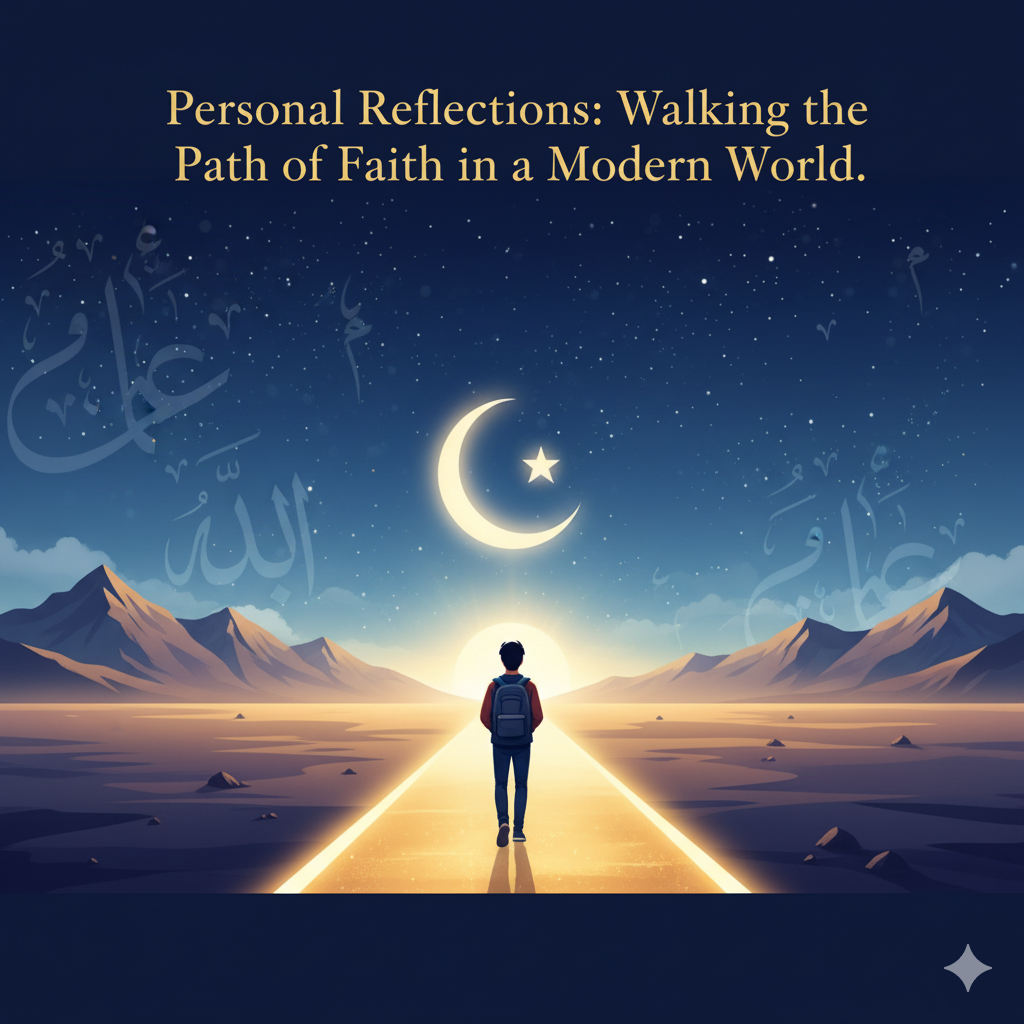The Power of a Gentle Reminder 🌿
A reminder is often just a simple phrase, a verse of the Qur’an, or even a kind smile paired with advice. It does not demand, nor does it impose; rather, it suggests with love and leaves space for reflection.
Allah reminds us in the Qur’an:
“So remind, for indeed the reminder benefits the believers.” (Surah Adh-Dhariyat 51:55)
This ayah itself is a profound reminder that reminders are not futile. Even if someone appears to already know the truth, a gentle repetition revives it in their heart.
Think of a thirsty traveler offered water. He knows what water is. He knows it quenches thirst. But the reminder—“Here, take a sip”—is what actually revives him at that moment.
Why We Forget
Forgetfulness is a human trait, one embedded in our very creation. The Arabic word insan (human) shares its root with nisyan (forgetfulness). It is our nature to forget—our promises, our values, even our connection with Allah.
Daily distractions, constant exposure to worldly temptations, and the weight of personal struggles often cloud our spiritual memory. We begin to believe that wealth, fame, or comfort are permanent. A reminder serves as a gentle knock at the door of the heart, saying: “This is not forever—remember your Creator.”
Reminders for the Soul in Daily Life
1. Remembering Allah in Small Moments
It is not only during prayer or reading the Qur’an that we can remember Allah. Even small actions—beginning work with Bismillah, saying Alhamdulillah for food, or SubhanAllah when admiring the sky—become powerful reminders. These seemingly small phrases shape a heart that constantly turns back to Allah.
2. Reminders of Patience in Hardship
Life without struggle is impossible. Reminders like “Verily, with hardship comes ease” (Qur’an 94:6) anchor us when storms rage. They don’t erase the pain but strengthen us to endure it, knowing that hardship is temporary and that Allah never abandons His servants.
3. Reminders of Gratitude in Blessings
When blessings flow, it is easy to sink into heedlessness, forgetting Who gave them. A reminder of gratitude—“Which of the favors of your Lord will you deny?” (Qur’an 55:13)—shakes us awake. It prevents arrogance, turning every blessing into a bridge back to Allah rather than a wall that distances us.
4. Reminders in Relationships
A gentle reminder is also an act of love between people. A friend reminding another to pray, a spouse encouraging patience, or a parent advising kindness is all nasihah. These reminders don’t just build individuals but strengthen communities.
The Art of Giving Reminders
Not all reminders are accepted. Their effectiveness depends on how they are given. A sincere reminder requires three qualities:
Gentleness: Harsh words close hearts. The Prophet ﷺ was the most gentle in his advice, never humiliating but always uplifting.
Sincerity: A reminder given to show superiority loses its value. True nasihah comes from a heart that wants the best for another.
Relevance: A reminder is effective when it speaks to someone’s situation. Just as a doctor prescribes medicine based on illness, so must reminders address the context of the heart.
Personal Reflections: When I Needed a Reminder
There are moments in life when reminders strike us unexpectedly. Once, in the midst of stress, I overheard someone quietly reciting: “Indeed, Allah is with the patient.” (Qur’an 2:153). Those words were not directed at me, but they felt like an arrow straight to my heart.
It reminded me that patience was not weakness, but strength. It was as if Allah Himself was reminding me through the voice of another. Such is the beauty of nasihah—it often arrives when we least expect it, yet exactly when we need it most.
Reminders in the Sunnah
The Sunnah of the Prophet ﷺ is filled with reminders that were short but carried oceans of meaning. For example:
“The strong person is not the one who overcomes others, but the one who controls himself in anger.”
“Whoever believes in Allah and the Last Day, let him speak good or remain silent.”
“Smiling in the face of your brother is charity.”
Each of these is a reminder that reshapes how we live daily. They are not theoretical—they are practical tools to build a life pleasing to Allah.
Creating a Habit of Reminders
For reminders to truly impact our lives, they must become a habit, woven into the fabric of daily living. Here are a few ways:
Morning reflections: Begin each day with a short ayah or hadith.
Visual cues: Place reminders in your workspace, like “Pray on time” or “Be grateful today.”
Digital reminders: Subscribe to Islamic apps or daily nasihah posts that send gentle pushes.
Circle of friends: Surround yourself with companions who remind you of Allah, not of sins.
When Reminders Hurt
Sometimes, reminders can sting. The ego resists correction. But the discomfort is often a sign that the reminder has touched a sensitive truth. Instead of rejecting it, we should pause and ask: “Why did this bother me? Is it because it is wrong, or because it is right?”
Humility opens the heart to accept reminders, while arrogance slams the door shut.
Conclusion: Becoming a Reminder Ourselves
We all need reminders, but we are also responsible for being reminders to others. The beauty of Islam is that it encourages a community of hearts bound together by sincerity and compassion.
Every smile, every gentle word, every sincere piece of advice is a form of nasihah. We may never know how deeply a simple reminder can change someone’s life, or how it may even save a heart drifting away from Allah.
As we end this reflection, let us commit to being both seekers and givers of reminders—because in doing so, we fulfill the words of Allah: “Remind, for indeed the reminder benefits the believers.”
 English
English









